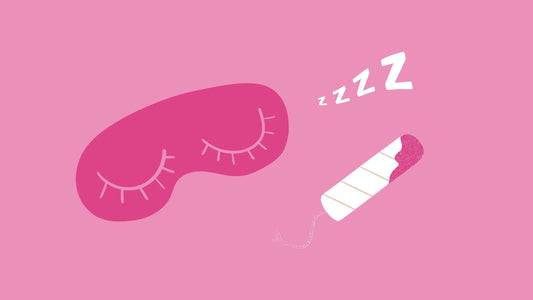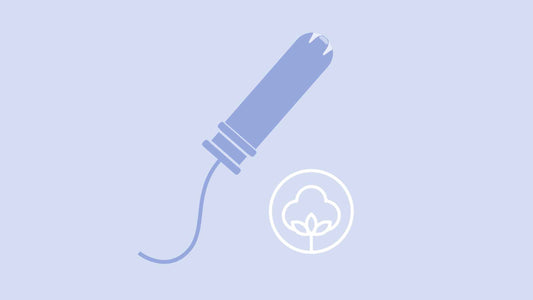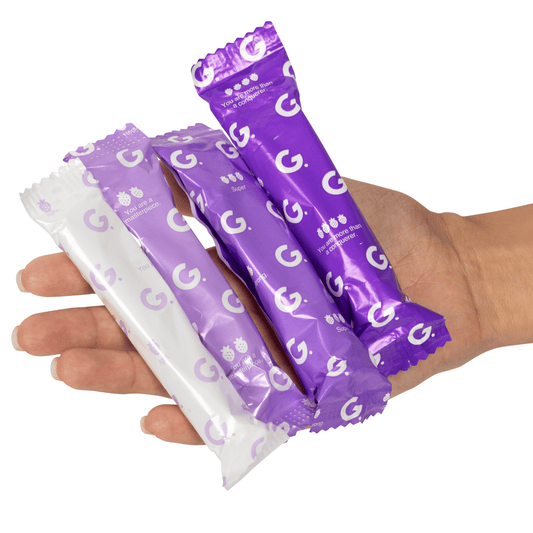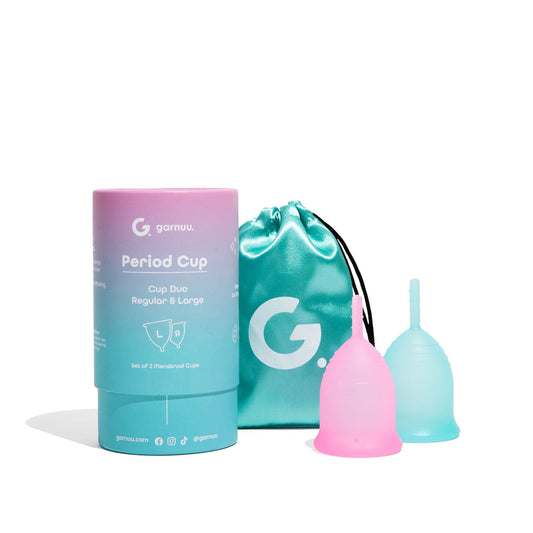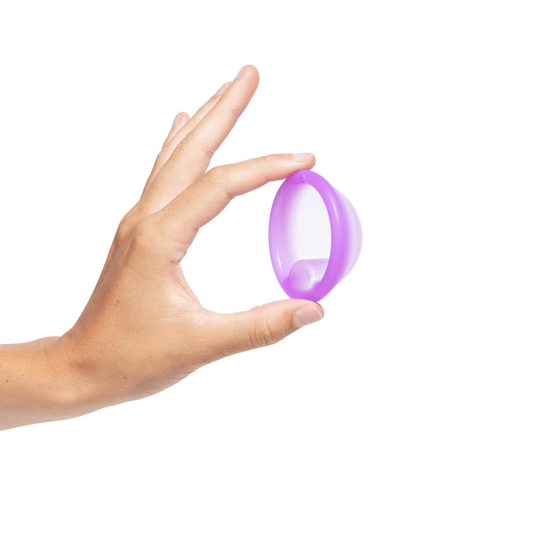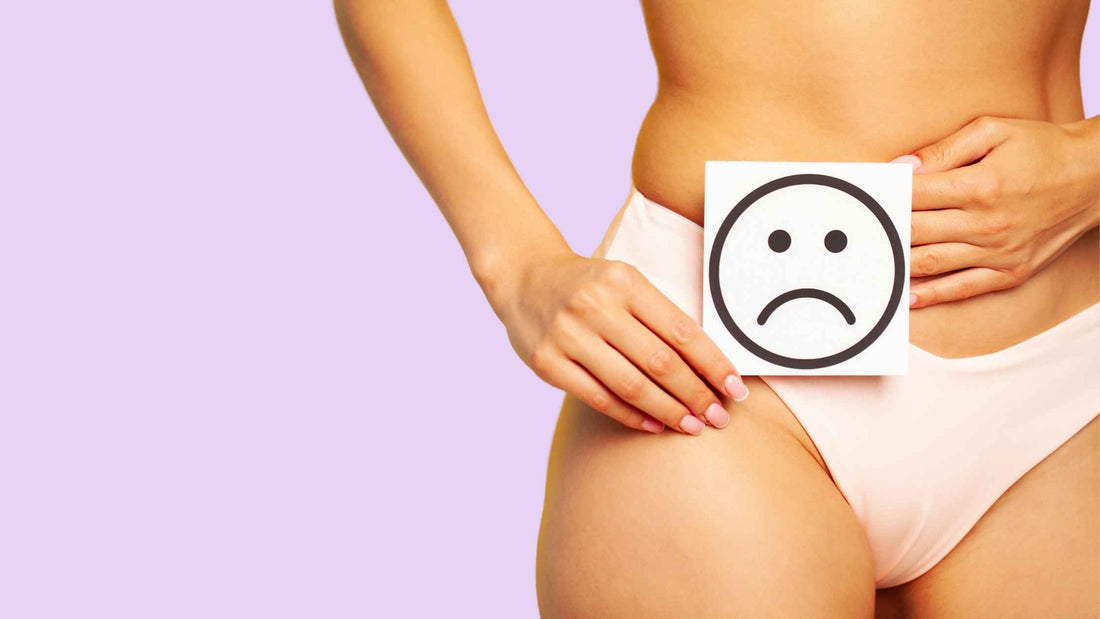
Vaginal Itching: What You Need to Know
Share
Vaginal itching is a common problem for women of all ages. While it may be embarrassing to talk about, it is important that you understand the causes of vaginal itching and how to treat it.
In this blog post, we will discuss the various causes of vaginal itching and how to get relief from this irritating condition.
Causes of vaginal itching
Hormonal changes
The vaginal ecosystem is highly sensitive and made up of a bunch of different bacteria and yeast. These can suffer a disruption in their normal levels when there is a fluctuation in hormones, leading to an itchy vagina.
Irritants
Exposing the vagina to irritating chemicals and fabrics can cause vaginal itching. When the healthy pH balance of your vagina is disrupted, it can cause some vaginal irritation. In more cases than not, vaginal itching is usually caused by one of these irritants:
- soap
- bubble baths
- feminine sprays
- chemical irritants
- hygiene sprays or vaginal sprays
- perfume
- douches
- topical contraceptives
- creams
- ointments
- detergents
- fabric softeners
- scented toilet paper
- scented pads or tampons
Old blood that's still lingering
Do you ever notice that your vagina becomes itchier toward the end of your period? It could be due to the old blood that is still present in your vagina. The small amount of blood could cause some itchiness.
Yeast infection
Yeast infections are very common, affecting every 3 out of 4 women at some point in their life. Yeast infections generally happen after taking antibiotics. Antibiotics kill bad bacteria along with the good, creating an overgrowth of yeast in the vagina area.
The overgrowth of the yeast can create a vaginal yeast infection resulting in uncomfortable itching, burning, and a lumpy cottage cheese-like white discharge.
If you go to your doctor, they can prescribe you with an anti-fungal medication.
Some women choose to get rid of vaginal yeast infections naturally. If you go the natural route, try some yogurt or probiotics. Yogurt can be considered a probiotic because it contains live bacteria, like Lactobacillus acidophilus. These types of bacteria are essential for creating a balanced and healthy environment for your vagina. Probiotics can help treat overgrowths caused by an imbalance of hormones.
Click here for more information and remedies for yeast infections!
Skin diseases
Some women who have skin diseases such as eczema and psoriasis can have redness and itching in the vaginal area. If you have a skin disease and suspect that it is the cause of your vaginal itching, you should see your doctor.
Inflammation
During periods, the inflammation levels of the body rise causing more itching than normal times of the month. This is because the estrogen hormone is at its lowest when you are on your period, which keeps the inflammation in check.
Bacterial vaginosis
Like a vaginal yeast infection, bacterial vaginosis (BV) is triggered by an imbalance between the good and the bad bacteria in the vagina. When bacterial vaginosis occurs, the vaginal discharge is a dull gray or white color, foul smelling discharge, and you are quite itchy down there.
Doctors often treat bacterial vaginosis with antibiotics. If you want to try the natural route--probiotics, orally taking garlic, and boric acid have been studied methods for treatments for BV.
Sexually transmitted infection (STI) or sexually transmitted disease (STD)
There are a few different types of STDs or sexually transmitted infections that cause vaginal itching.
- Genital warts
- Chlamydia
- Gonorrhea
- Genital herpes
- Trichomoniasis
Some of these STIs/STDs come with abnormal discharge and bumps.
You can treat STDs with antibiotics, antivirals, or an antiparasitic.
Menopause
Due to the reduction of estrogen levels that take place during menopause, the vagina can become very dry and cause itching and irritation.
To help with this, some women use water-based vaginal lubricants or moisturizers. Vaginal estrogen therapy is also an effective way to treat menopause-related vaginal dryness and itching.
Stress
Stress takes a toll on almost every part of our bodies if we let it, including our vaginas. It generally occurs when stress weakens your immune system, leaving you more prone to infections, such as vaginal infections.
How are vaginal itching, burning and irritation treated?
Vaginal irritation usually goes away entirely with proper treatment. Nonetheless, you need to consult your physician if the irritation persists after treatment.
Medication
Generally, most vaginal itching can be treated with antibiotics or other medications. These medications come in various forms, including pills, creams, and ointment.
Probiotics
Probiotics are great natural forms to get rid of vaginal itching and vaginal infections. They help balance the healthy bacteria and the bad bacteria. Probiotics may not work as fast as regular medications, but they do work!
How to prevent for vaginal itching
Most of the time, you can prevent vaginal itching through proper clean hygiene and lifestyle habits. Here are some natural ways to get rid of vaginal itching
- Avoid scented soaps, lotions, and bubble baths.
- Try taking an oral probiotic daily.
- Drink cranberry juice.
- Use warm water and a gentle (non-scented) cleanser to wash your genital area.
- Avoid using vaginal sprays and douches. These just mess up your vagina's pH levels.
- Change out of wet or damp clothing right after swimming or exercising.
- Wear cotton underwear and change your underwear every day.
- Eat yogurt with live cultures to reduce the chance of getting yeast infections.
- Use condoms during sexual intercourse.
- Always wipe from front to back after having a bowel movement.
Vaginal discomfort isn't fun, so we at Garnuu hope this informational blog helped clear up some questions you might have. We care about women's health and want to keep you informed and educated on the things we think are important to know! Garnuu is here for you, so please don't hesitate to contact us with any questions or concerns. Stay healthy and happy out there ladies!
-Garnuu Team xo



